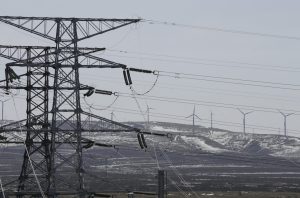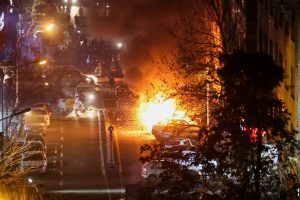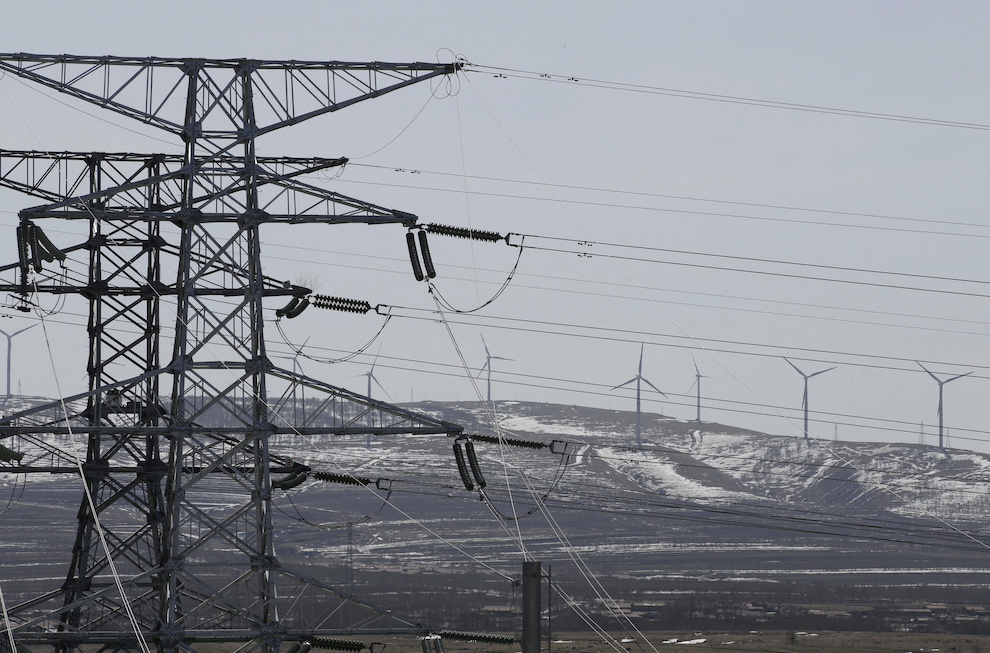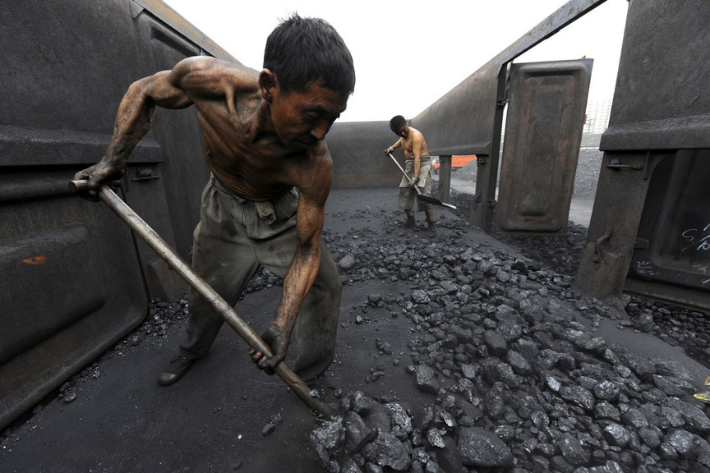Wells Fargo Bank has suspended travel to China after a senior bank official was blocked from leaving the country.
The news, revealed by the Wall Street Journal and confirmed by Reuters on Thursday, has spurred concern about the risks of travel in the country.
It involves Chenyue Mao, who was born in China but rose to become a US citizen and the US banking giant’s managing director in Atlanta. Sources told the Journal she was banned from leaving after she entered China in recent weeks.
ALSO SEE: China’s Focus on Economic Output is Crushing Some Citizens
“We are closely tracking this situation and working through the appropriate channels so our employee can return to the United States as soon as possible,” Wells Fargo said in a statement emailed to Reuters.
China’s foreign ministry spokesperson Lin Jian told a press briefing on Friday that he was not familiar with the Wells Fargo matter, adding that China was committed to providing a welcoming environment for foreign companies to do business.
A senior Trump administration official on Thursday said they could not comment on the reports of Mao being refused permission to leave China, citing privacy considerations.
Concern over China business risks
The ban could worsen concerns among multinational companies about the risks of doing business in China, particularly around employee safety and freedom of movement. The incident could also chill corporate travel to the country and complicate relations between the world’s two biggest economies.
Broader US-China relations remain tense, shaped by deepening strategic, economic and geopolitical rivalries.
Mao was born in Shanghai and is based in Atlanta, according to a June 2025 release from FCI, where she serves as chairwoman. FCI, formerly named Factors Chain International, is a global network of companies that do business in the factoring and financing of trade receivables.
Even before the incident with the Wells Fargo employee, some of the large banks had been asking their employees to exercise more caution while traveling overseas by carrying additional documents, considering the geopolitical risks and some concerns around immigration policies, a source at a large bank said.
“This kind of event is not a step in the right direction,” said Mark Headley, co-founder and CEO of Matthews Asia, a San Francisco-based asset manager with $6.5 billion in assets. Matthews Asia has a team based in Hong Kong, and five dedicated China funds as well as a roster of broader emerging market and pan-Asian funds.
“Should I be worried about my employees in China or traveling there? It certainly has leaped to the front of my mind yet again,” Headley said. “We’ve seen a long pattern since I first travelled to China in 1991 of the country being very tricky to work in, to seeming totally normal, to being tricky again.”
Headley has not suspended corporate travel to China, but told Reuters on Thursday that he will monitor events closely.
“Right now, I don’t feel that the Chinese authorities will go after foreign tourists,” or senior executives of companies that are among China’s biggest trading partners and crucial to its economic growth, Headley said.
Chairwoman of FCI factoring network
Before her election as FCI chair in June, Mao served as vice chair of the body. The industry body did not immediately respond to a Reuters request for comment on the matter.
Wells Fargo CEO Charlie Scharf is a member of the Business Roundtable, a group of company leaders that was addressed by US President Donald Trump earlier this year.
Mao is a US citizen, according to the source who said Wells Fargo has suspended travel to China.
She has been a banker at Wells Fargo for over a decade, according to her LinkedIn profile. She currently serves as a managing director at the lender and spearheads its international factoring business, as well as advising multinational clients on cross-border working-capital strategies.
Factoring is a financing method where companies sell their receivables to third parties, such as banks, in exchange for immediate cash. The third party, known as the factor, profits by purchasing the receivables at a discount and collecting the full amount later.
The Wall Street Journal reported it could not be determined precisely when Mao entered China, or what prompted the travel restriction.
She has worked and interacted with Chinese companies and industry groups on trade financing and international factoring matters, the Journal reported, adding she also sometimes traveled to China for business.
Increasing use of exit bans
Beijing has increasingly used exit bans on both Chinese and foreign nationals, often in connection with civil disputes, regulatory investigations or criminal probes.
Many affected individuals are unaware of the restrictions until they attempt to leave the country.
Mao did not immediately respond to a Reuters request for comment on LinkedIn.
“The Chinese government has, for many years, imposed exit bans on US citizens and other foreign nationals in China, often without a clear and transparent judicial process for resolution,” the senior Trump administration official said.
In September 2023, authorities in China ordered a senior Nomura banker overseeing the firm’s investment banking operations there not to leave the mainland.
Some companies have cancelled or delayed trips to China in recent years, while others have introduced safeguards such as advising staff to enter the country in groups rather than alone.
Human-rights groups say China is using exit bans more frequently, often targeting individuals under investigation or those asked to cooperate with government inquiries.
Headley told Reuters that the incident involving Mao reminds him of travelling with a Chinese-born colleague who had become a US citizen around 2003. They were scheduled to fly from Shanghai to Hong Kong, and Headley, who had cleared security first, turned around to see his colleague “surrounded by Chinese security police, being marched off.”
The colleague managed to get back to Hong Kong by flying to Guangzhou and then boarding a ferry to Hong Kong.
“I was completely powerless to help,” Headley said. The current escalation in the level of rhetoric has reminded him to be wary and not “to poke the panda bear.”
- Reuters with additional editing by Jim Pollard
ALSO SEE:
China Threat to Block Panama Ports Deal, ‘Wants a Cosco Stake’
China Firms Race Out Exports to Beat Trump’s Big Tariff Deadline
China Boosts Social Security as Trade Rows Hit Economy, Jobs
Chinese Economy Slips in 2nd Quarter, Exports Seen Falling
China’s Criticism of Price Wars Sheds Light on Xi’s ‘Waning’ Power
Factory Activity in China Slumps to Lowest in Nearly Three Years
China Bans Top Nomura Investment Banker From Exiting Mainland
China’s New Anti-Espionage Law Puts Firms at Risk, US Warns
Missing China Banker Wanted to Move Wealth to Singapore – FT
Chinese Minister, ‘Mistress’, Rocket Chiefs All Missing – A/Sentinel
Irish Businessman Allowed to Leave China After 3 Years
Huawei CFO Meng, Two Canadians Fly Home After US Prosecutors’ Deal























